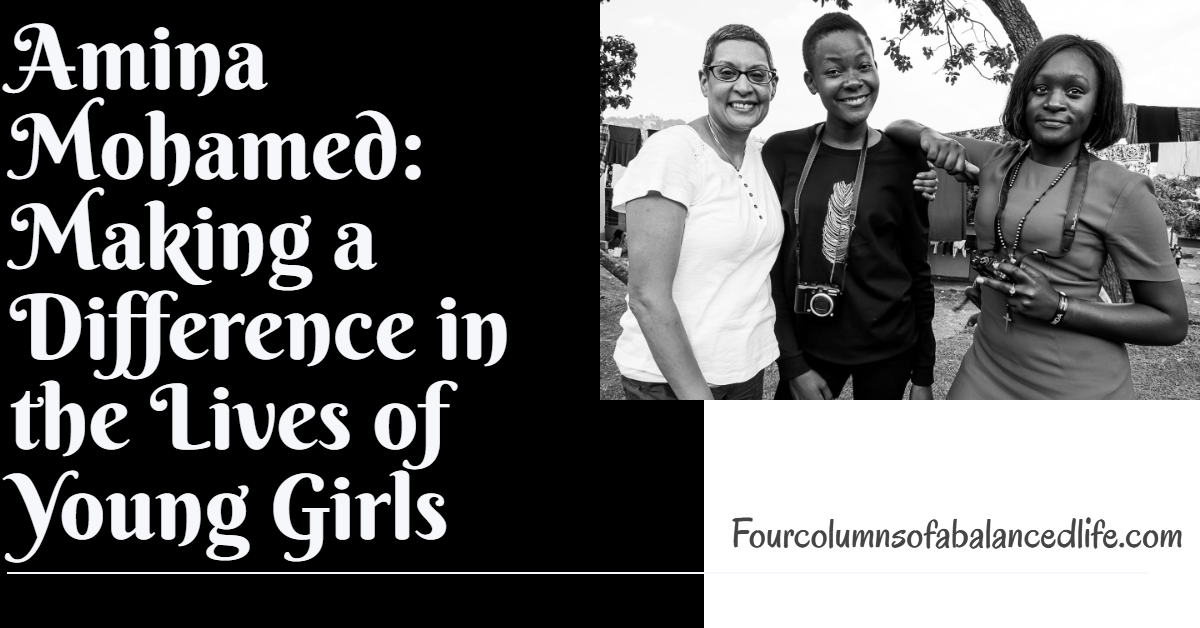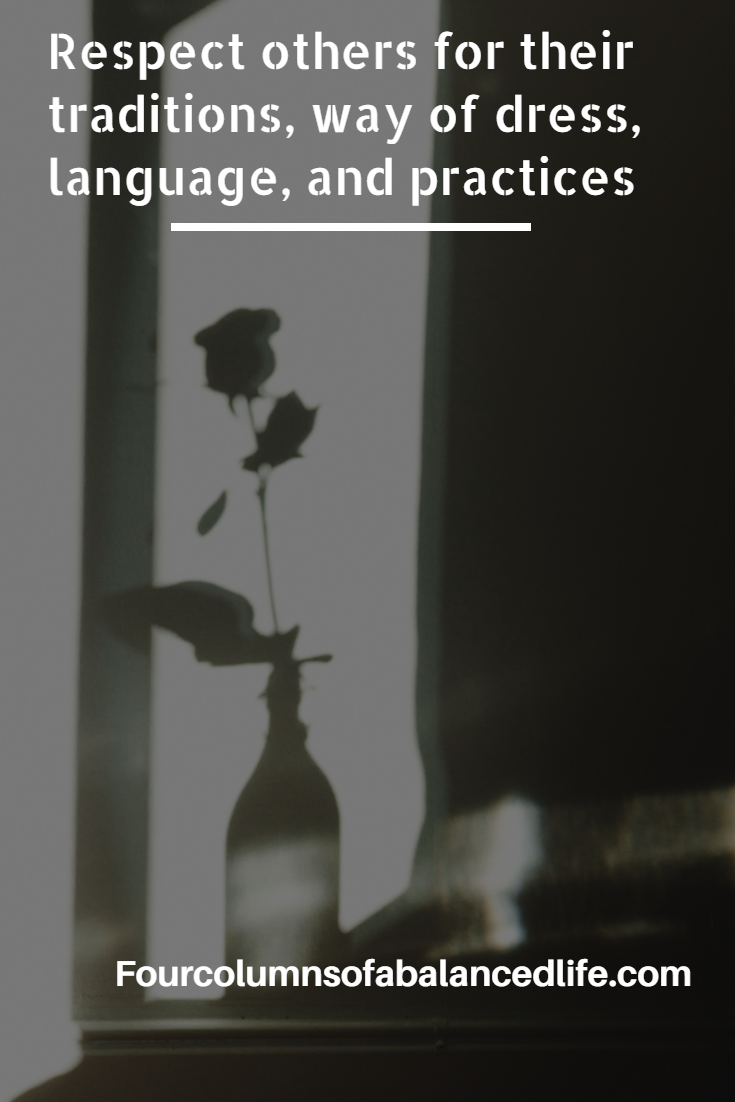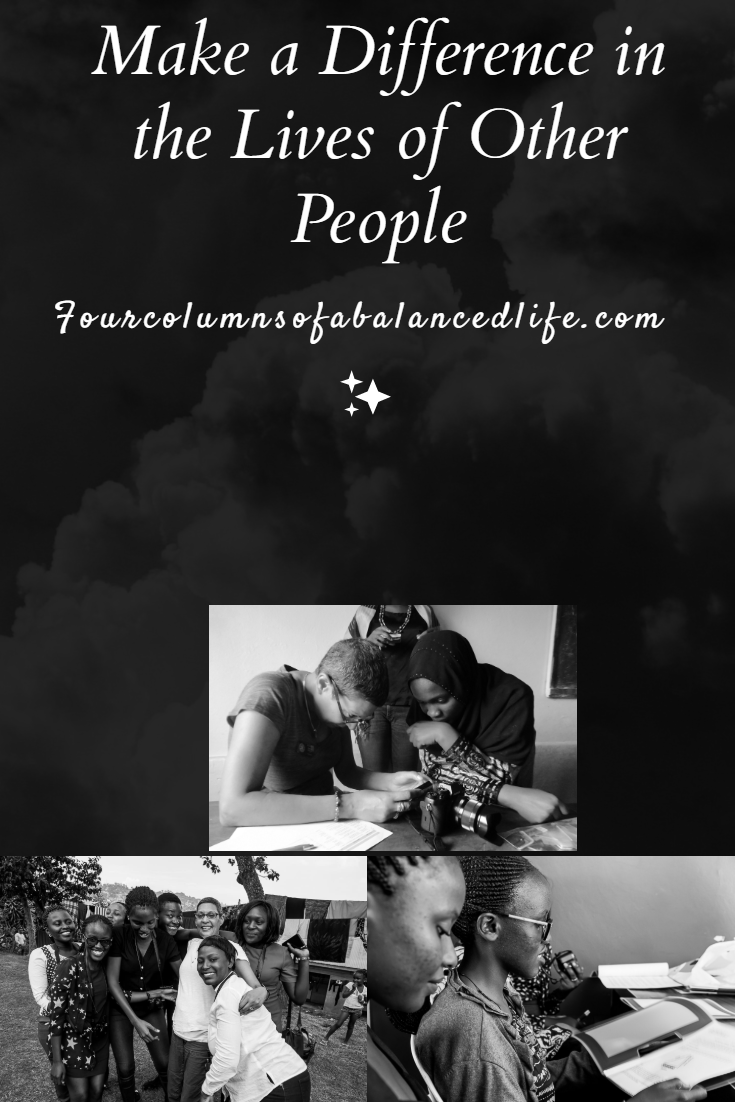Amina Mohamed: Making a Difference

Amina Mohamed is a game-changer. Four Columns is always on the lookout for game-changers who are empowering women. Amina Mohamed is the embodiment of a game-changer. She is passionate about making a difference in the lives of young girls in Uganda. She has taken the tenets of her faith and puts them to practical use. She walks the walk. Amina shares a lot of wisdom in this interview. She is real and vulnerable about her own life. I admire her willingness and persistence to make a difference in this world through her charity and volunteer work at Triple F Photo Tours. If you would like to sponsor her initiative or follow on social media, please click and you will find more information.
A game-changer is a newly introduced element or factor that changes an existing situation in a significant way. It is the Eureka moment when you see something others do not. We experience something significant and rousing that we want to do something. It is metamorphic alchemy that makes a difference in the lives of people.
A game-changer is relentless, committed, and persistent to a cause. They are original, who see the status quo and bring an out-of-the-box mindset. They break free from traditional thinking, test the patterns of thinking like lemmings and promote diversity of thought.
A game-changer is introspective, self-aware, and cognizant of the needs and emotions around them. The game-changer knows that what they are doing is bigger than themselves. They get intrinsic satisfaction from making a difference in the lives of other people.
Hi Amina, I love that your name means peace, tell me something important about you?
I am passionate about helping others. When I am not working on my work in Uganda, I volunteer in my community with Rotary International or I do community work by supporting the homeless. I strongly believe that if we all do our part to help others, we can all make this a more beautiful world.
Talk to me about your catchy slogan ‘where fun, f(ph)otography & f(ph)ilanthrophy meet?
I wanted a slogan that fit both Triple F Photo Tours (taking enthusiast and amateur photographers on a tour of Uganda and helping them improve their photography while on an excursion, hence the Fun and the F(ph)otography) and the work I do with Cameras For Girls (our F(ph)ilanthropic outreach).
Walk me through your journey and how you came to reconcile your identity?
Reconciling that identity has always been a struggle. I was born in Merton, UK, moved to Uganda when I was nine months old, and lived in Uganda until I was three when we were forced to leave our home country by Idi Amin. I grew up with a mixture of Indian and African roots and the feeling that I did not fit in anywhere. Canada has been home for the last almost 50 years (next November will the 50-year anniversary when we came to Canada) and I am still torn between my Canadian identity and my African roots. To further explore this, my husband is Danish and my Canadian-born adopted daughter is half-Polish and half-Sudanese. We refer to ourselves as the United Nations.
I admire that you want to make a difference in the lives of girls and leave a legacy. Help me understand how you came to that point in your life?
I had an amazing career working in film and television and after 15 amazing years working on many films, tv series, documentaries, and short films, I left to do something else. We were newly married (I married late) and considering adopting and working in this industry is not conducive to a happy marriage, thus I quit. From there I went on to work in the real estate industry, first as a home stager and then later as an award-winning mortgage broker. However, the call of the camera and creativity started calling my name and in August 2017, frustrated with my career I came up with the idea to make a difference for young girls and women in Uganda.
On my first trip home to Uganda in 2007, I was there to self-direct and produce a documentary about the return of the Asians that started coming back as then and current President Museveni realized that if Uganda was going to make any type of economic recovery, he would have to welcome home the Indians. When I got there, the sheer poverty hit me hard and the realization that many girls and women in developing countries are not given the same rights and freedoms I had been given, growing up in Canada. I wanted to make a difference but at that time I did not know-how. Fast forward to August 2017 and I came up with this idea and a year later after making a business plan, I was in Uganda conducting my first photography training with 15 young girls and women between the ages of 18-29. These girls come with a background in journalism. Unlike North America or Europe, a job in journalism in Uganda does not guarantee a payment or a full-time job, unless you own a camera and know how to use it. By marrying our program with girls and women who are either in their last year of a University Journalism program, or girls who have graduated and looking for work, or girls who have been hired but not getting paid, simply because they lack the skills, we are able to help them get full-time jobs in a very male-dominated society. To date, I have taught 32 girls and 11 now have full-time jobs.
What does it mean to be raised with a deep sense of community, culture, and humanity?
It’s important to me because living in Canada in a cultural melting pot and having my own melting pot of a background, I am able to see others and respect others for their traditions, way of dress, language, and practices. I believe that at the end of the day, regardless of our cultural backgrounds we are all the same and that if we were to all think that way, humanity would be much happier and more peaceful.

The Ismaili diaspora is very successful. There are solidarity and brotherhood among them. In your opinion what leads to that success?
My own grandfather emigrated to Uganda from India when he was 14 years old, as he saw opportunities that were not available to him in India. Many Indians were brought to Uganda to build the railroad and after completing this, they stayed and raised their families. My grandfather worked hard and earned enough to bring his mother, his brothers, and their families to Uganda. Both my paternal and maternal grandfathers were very wealthy and successful in Uganda. My parents were first-generation born and my sister was 2nd generation. I myself was born in the UK. Knowing how hard it was for our grandfathers, who led and paved the way, made Ismaili’s in particular recognize the sacrifices that were made to make a better life in Uganda, and thus hard-work came with that.
Interesting fact – Prime Minister Pierre Elliott Trudeau and The Aga Khan were very good friends and thus when we were exiled from Uganda, it was due to this friendship that there exists many Ismaili’s in Canada. Other countries that took us in were Austria, Germany, and Uganda.
Define women empowerment and your role in empowering young girls?
We give the girls a camera to keep, teach her how to use it to tell stories that matter to them. We also assist them to apply for jobs by helping them with resumes, cover letters, and LinkedIn profiles. By providing the tools, we empower our girls to compete for jobs, otherwise not afforded to them, simply due to gender or inequality that exists in many developing countries. Our girls go out in the world equipped with the tools to succeed. The camera stands as the same as teaching a person to fish.
The word is mightier than the sword. One photograph can change the world. Please comment?
100% agree. Think about the photo that Steve Curry took of the Afghan girl or Nilüfer Demir’s photo of Alan Kurdi, the drowned Syrian boy. Images can sear your memory and make concrete changes in the world. Images can convey a thousand words as they say due to the power they have to make concrete and long-lasting changes.
Help me understand your faith, culture, food, and special festivals?
I grew up in a strict Muslim household and would attend prayers every Friday as well as all religious festivities, however, as I got older I became more independent and no longer follow my faith. I am still Ismaili by birth but not in practice. I do however enjoy celebrating Eid and cultural festivals through my husband’s background and those of my friends, who come from different faiths. I believe again that we are all one and in some respects, religion can divide instead of bringing us together.

